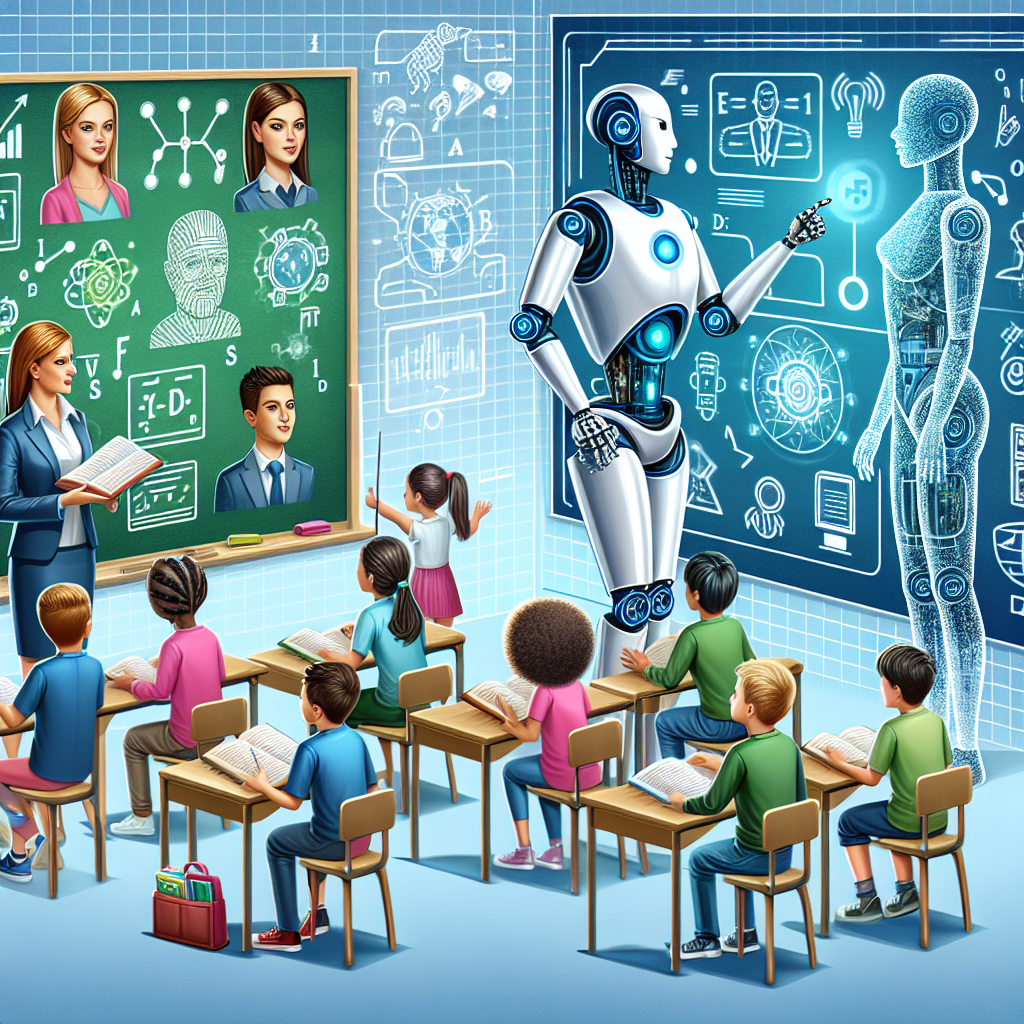Artificial Intelligence (AI) is transforming the education sector by personalizing learning experiences for students. The deployment of AI in education is revolutionizing the way students learn, providing tailored instruction, feedback, and support to meet individual needs. From virtual tutors to adaptive learning platforms, AI is reshaping the educational landscape and empowering students to reach their full potential.
Personalized Learning Experiences with AI
One of the key benefits of AI deployment in education is the ability to personalize learning experiences for students. Traditional education systems often take a one-size-fits-all approach, where students are taught the same material at the same pace, regardless of their individual learning styles or abilities. This can lead to disengagement, frustration, and ultimately, poor academic outcomes.
AI technology, on the other hand, can analyze vast amounts of data to understand each student’s unique strengths, weaknesses, and learning preferences. By leveraging machine learning algorithms, AI systems can adapt the curriculum, pace, and teaching methods to suit each student’s needs. This personalized approach not only helps students stay engaged and motivated but also maximizes their learning potential.
For example, AI-powered adaptive learning platforms can assess students’ knowledge levels through diagnostic tests and then provide customized learning paths based on their performance. These platforms can dynamically adjust the difficulty of questions, provide instant feedback, and offer additional resources or support when needed. This targeted approach enables students to progress at their own pace, focus on areas where they need the most help, and ultimately achieve better academic outcomes.
Virtual tutors are another application of AI in education that personalizes learning experiences for students. These intelligent tutoring systems can interact with students in real-time, answer questions, provide explanations, and offer personalized feedback. Virtual tutors can also track students’ progress, identify learning gaps, and recommend additional practice exercises or resources to help students improve their understanding of the material.
AI deployment in education also enables teachers to personalize instruction for their students. By analyzing students’ performance data, AI systems can provide insights into each student’s learning process, identify areas for improvement, and suggest strategies to enhance learning outcomes. This data-driven approach empowers teachers to tailor their teaching methods to meet the diverse needs of their students, ultimately creating a more engaging and effective learning environment.
Challenges and Considerations
While AI has the potential to revolutionize education by personalizing learning experiences, there are challenges and considerations that must be addressed to ensure its successful deployment. One of the main concerns is the ethical implications of using AI in education, such as data privacy, bias, and transparency. Educators and policymakers must establish clear guidelines and regulations to protect students’ privacy, prevent algorithmic bias, and ensure transparency in AI systems.
Another challenge is the need for adequate training and support for teachers to effectively integrate AI technology into their classrooms. Educators must be equipped with the necessary skills and knowledge to leverage AI tools, interpret student data, and make informed decisions about personalized instruction. Professional development programs and ongoing support are essential to help teachers navigate the complexities of AI deployment in education.
Furthermore, there is a need for research and evaluation to assess the impact of AI on student learning outcomes, engagement, and motivation. While initial studies have shown promising results, more rigorous research is needed to understand how AI can enhance learning experiences and support student success. Continuous evaluation and feedback are essential to refine AI systems, improve their effectiveness, and ensure that they meet the needs of students and educators.
FAQs
Q: How does AI personalize learning experiences for students?
A: AI analyzes students’ data, such as performance, preferences, and learning styles, to tailor instruction, feedback, and support to meet individual needs.
Q: What are some examples of AI applications in education?
A: Examples include adaptive learning platforms, virtual tutors, personalized recommendations, and data analytics tools for teachers.
Q: What are the benefits of AI deployment in education?
A: Benefits include personalized learning experiences, improved student outcomes, increased engagement and motivation, and enhanced teacher support.
Q: What are the challenges of using AI in education?
A: Challenges include ethical concerns, data privacy, bias, transparency, teacher training, research and evaluation, and the need for ongoing support.
Q: How can educators integrate AI into their classrooms?
A: Educators can integrate AI by incorporating adaptive learning platforms, virtual tutors, data analytics tools, and personalized recommendations into their teaching practices.
In conclusion, AI deployment in education is transforming the way students learn by personalizing their learning experiences. By leveraging AI technology, educators can provide tailored instruction, feedback, and support to meet individual needs, ultimately empowering students to reach their full potential. While there are challenges and considerations that must be addressed, the benefits of AI in education are clear: improved student outcomes, increased engagement, and enhanced teacher support. As AI continues to evolve and innovate, the future of education is brighter than ever before.

